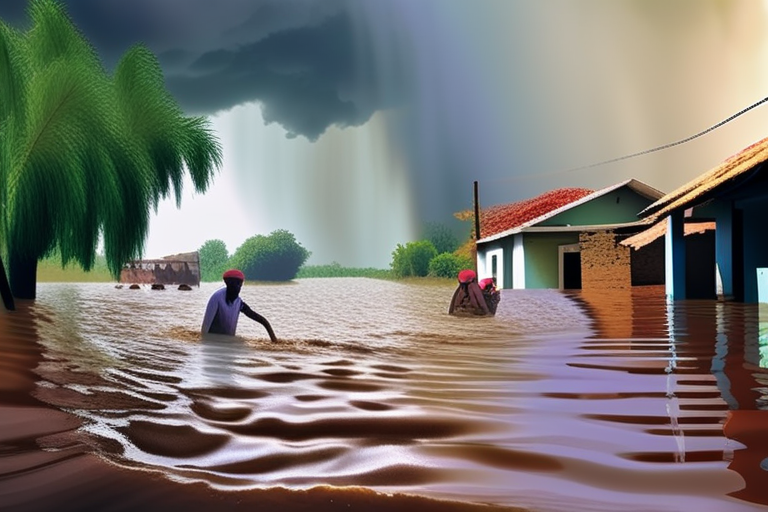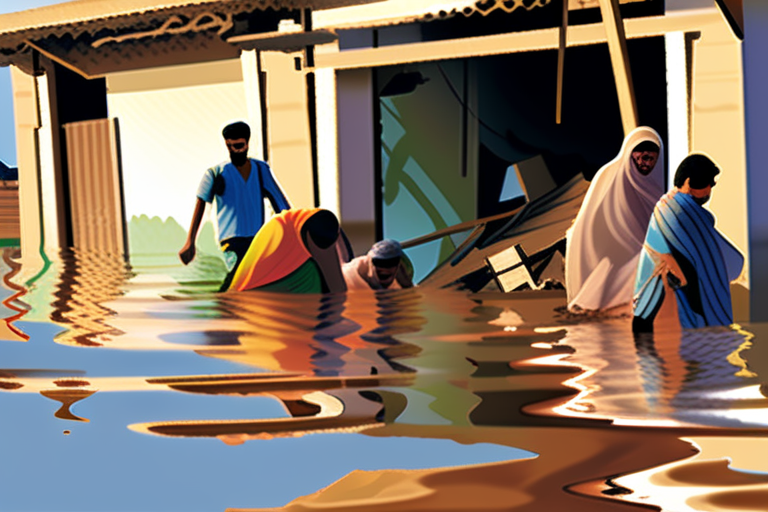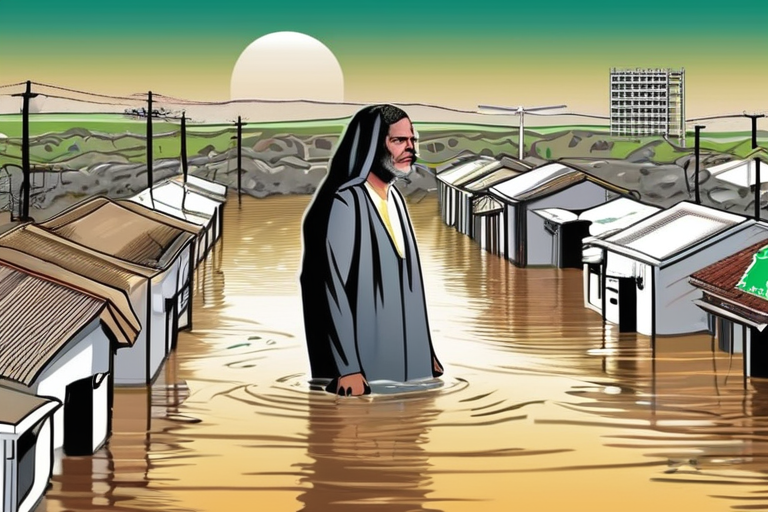Floodwaters Know No Borders: India and Pakistan Must Unite Against Shared Disaster Risks


Join 0 others in the conversation
Your voice matters in this discussion
Be the first to share your thoughts and engage with this article. Your perspective matters!
Discover articles from our community

 Hoppi
Hoppi

 Hoppi
Hoppi

 Hoppi
Hoppi

 Hoppi
Hoppi

 Hoppi
Hoppi

 Hoppi
Hoppi

Five People Dead as Rescue Boat Overturns in Pakistan Floods At least five people lost their lives when a rescue …

Hoppi

Floods kill 30 and submerge 1,400 villages in Indian stateAbhishek DeyBBC News, DelhiAFP via More than 350,000 people have been …

Hoppi

More than 1.5 million displaced by Pakistan floods More than 1.5 million people in Pakistans Punjab province have been displaced …

Hoppi

BREAKING NEWS Pakistan's Climate Change Minister Slams "Crisis of Justice" Amid Devastating Floods Islamabad, Pakistan - September 19, 2025 - …

Hoppi

Heavy Rainfall Causes Devastation in Northern India JAMMU, India - Heavy rainfall in northern India triggered landslides and flash floods, …

Hoppi

Afghan Returnees Struggle Amid Economic and Climate Crises HERAT, Afghanistan - As the sun sets over the Islam Qala border, …

Hoppi